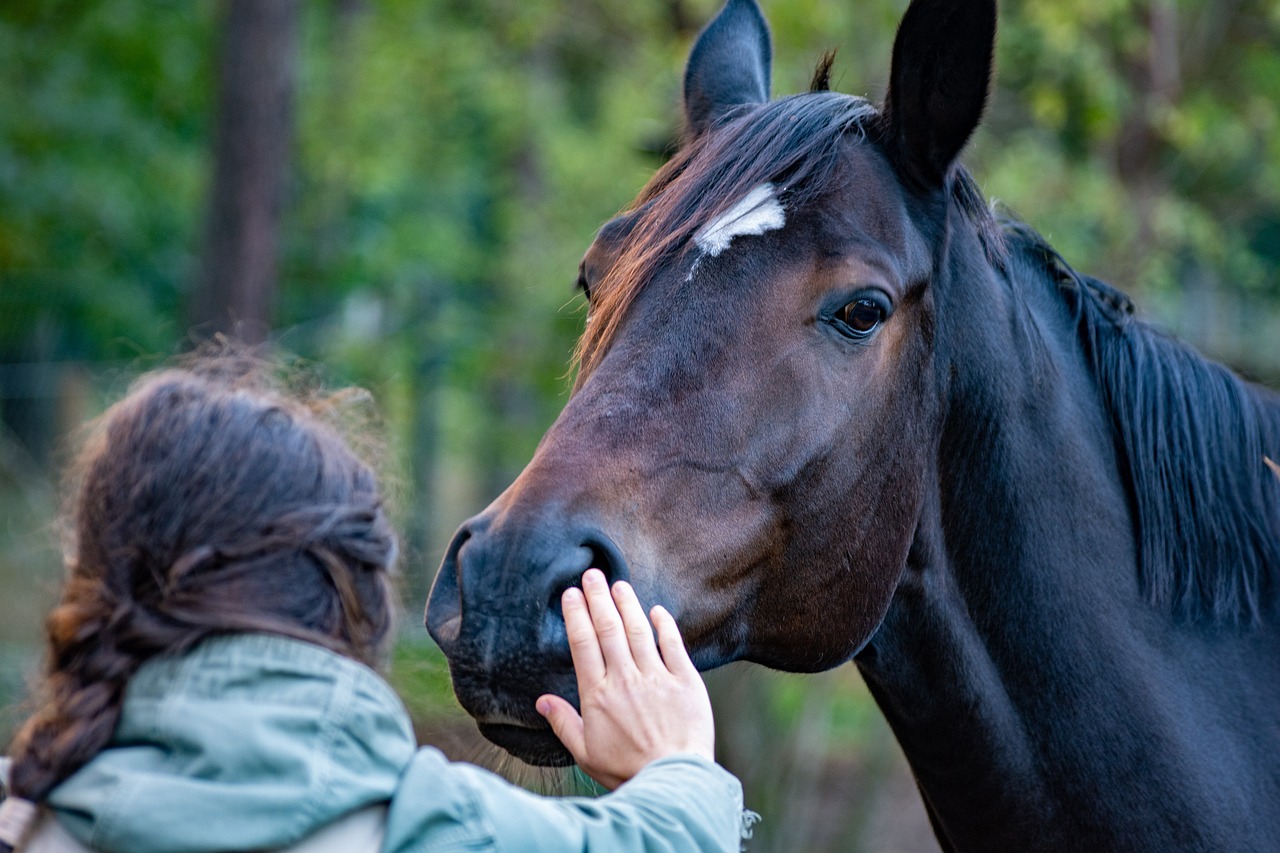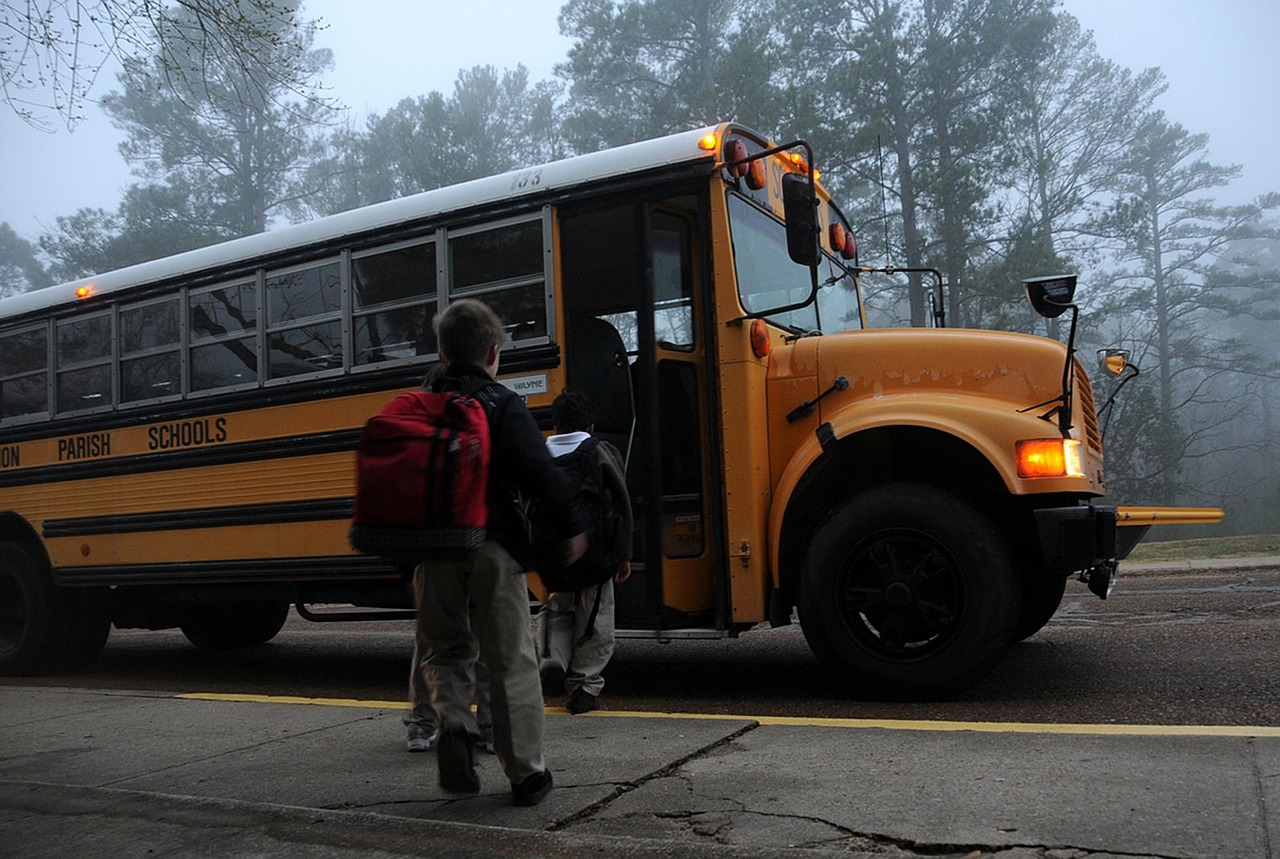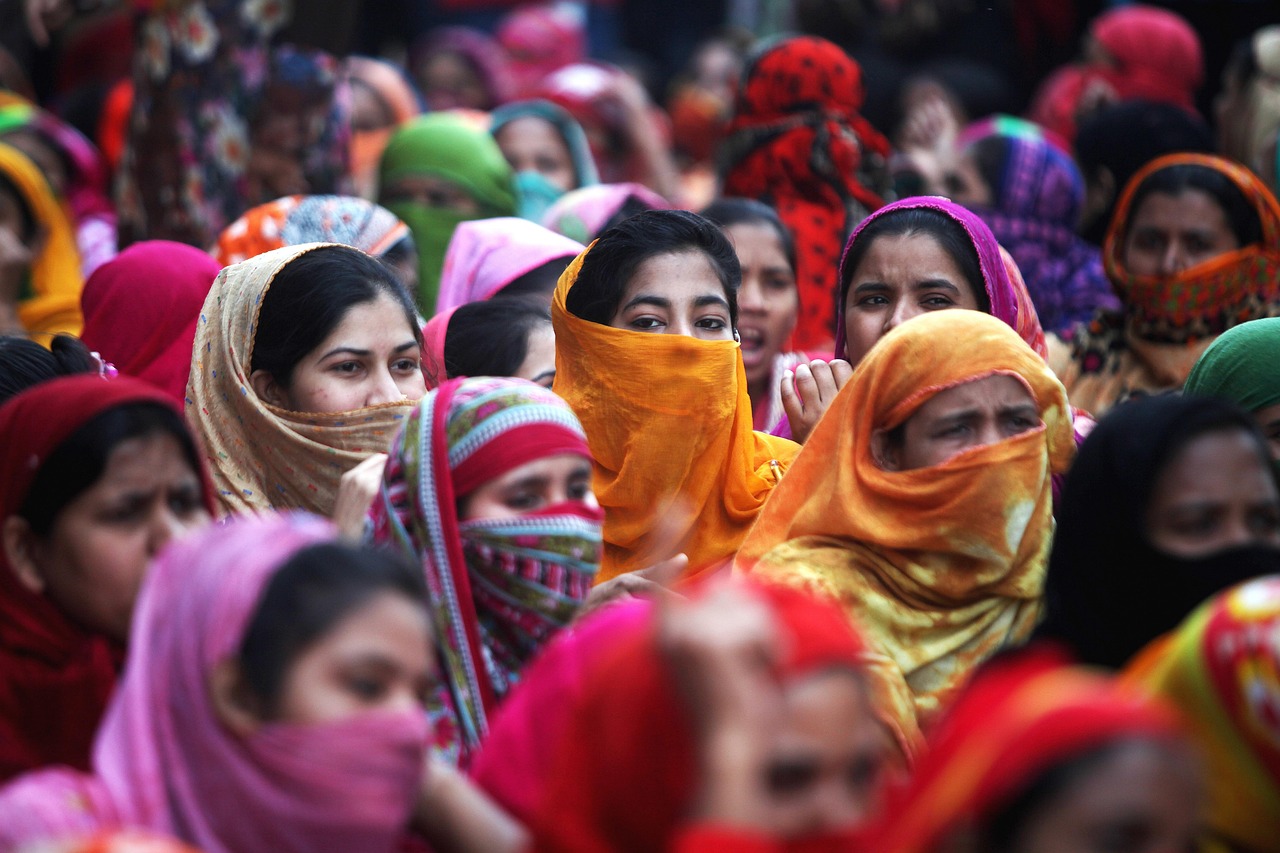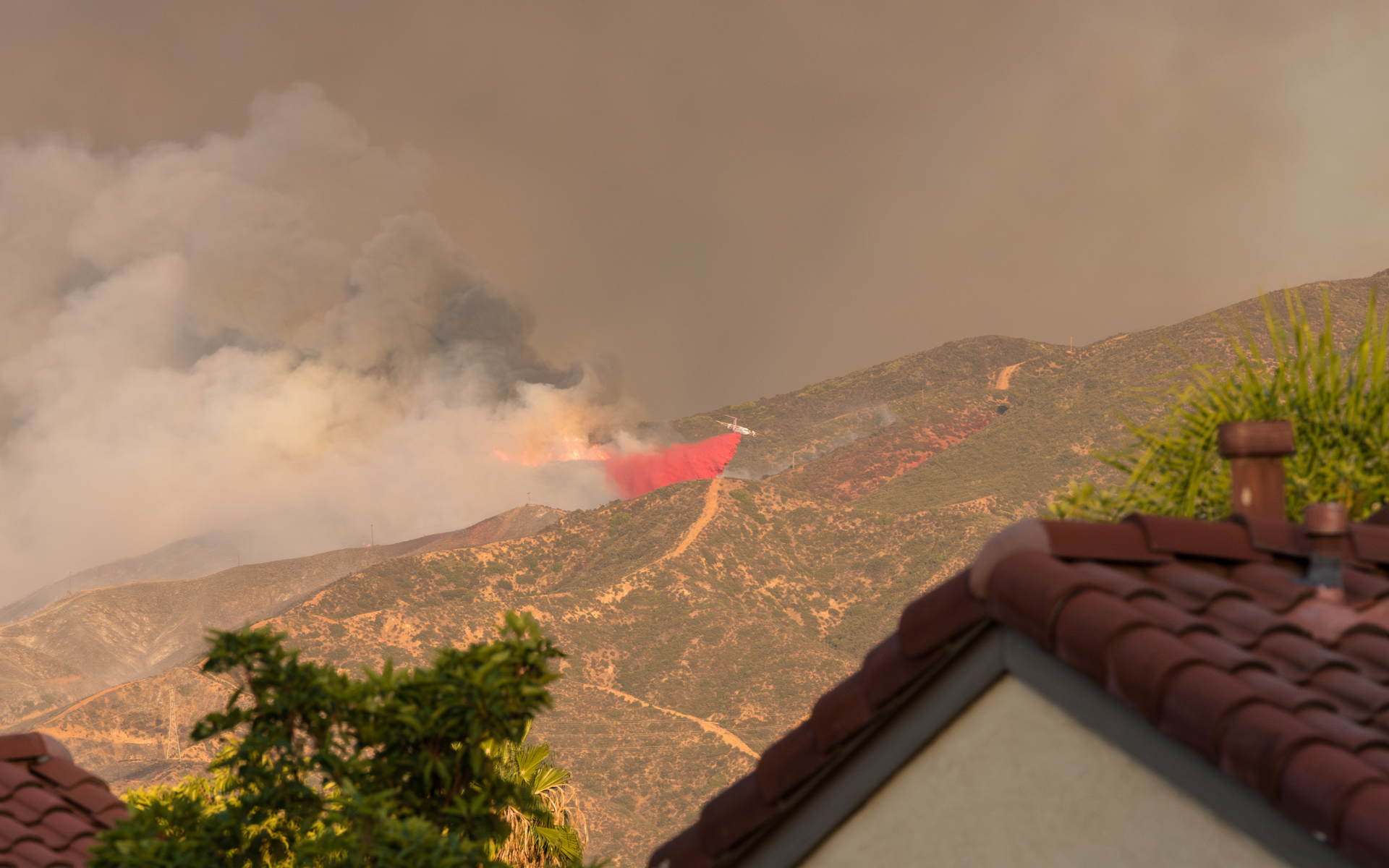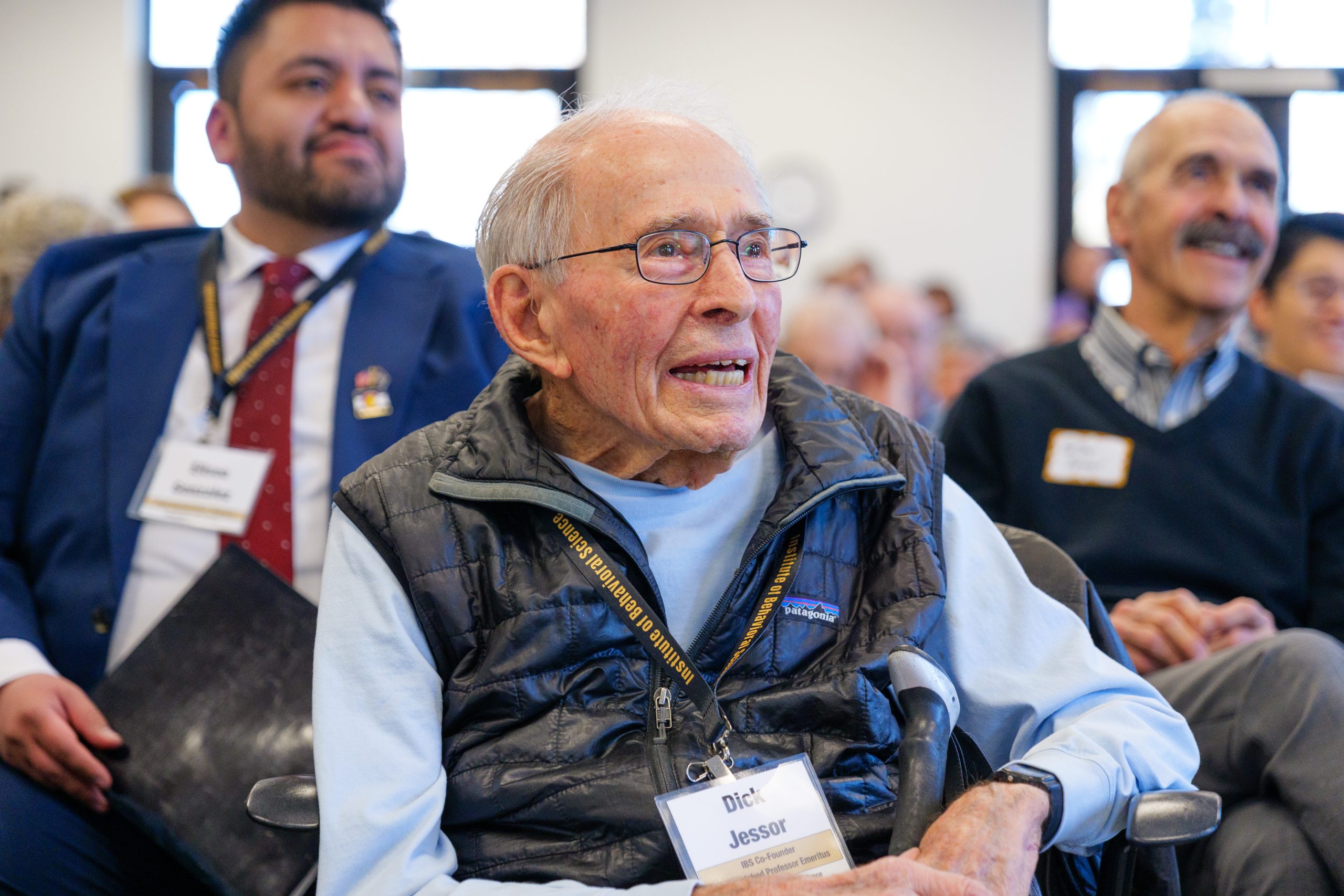A new initiative led by archaeologists and Indigenous scholars is calling for more respectful care of human remains and burial items housed in museums and research institutions. The effort emphasizes the importance of treating these ancestral remains with dignity rather than storing them in plastic bags or boxes. The group laid out its approach in a paper published this month in the journal Advances in Archaeological Practice. Assistant Professor of Sociology, IBS Affiliate, and archaeology curator at the CU museum, William Taylor, was the senior author for the paper. He highlights how current practices often disregard the cultural and spiritual significance of these remains, and how the initiative aims to promote more culturally sensitive approaches.
News
All news items, blog posts, and feature stories.
1 in 15 adults have been on the scene of a mass shooting – with David Pyrooz
A new study co-authored by CU Boulder sociology professor David Pyrooz reveals that 7% of the U.S. population have witnessed a mass shooting. The research, based on a nationally representative survey of over 44,000 Americans, also found that people who have experienced mass shootings are more likely to suffer from psychological distress and hold more negative views of police. Pyrooz shared about his research with Science Writer for CU Boulder Today, Lisa Marshall. He emphasized the importance of understanding the broader societal consequences of mass shootings for victims and communities.
Sarah Goodrum, team provide guidance for school safety through NIJ report
The CU Boulder-led Balancing the Components of a Comprehensive School Safety Framework, published through the National Institute of Justice, offers evidence-based strategies to enhance safety in K-12 schools. The report was led by Sarah Goodrum, research professor in the Prevention Science Program and director of the Violence Prevention Project, as well as Beverly Kingston, Sabrina Arredondo Mattson, Susanne Argamaso, Amanda Matthews, and Jody Witt. Goodrum sat down with Science Writer Lisa Marshall to discuss what insights can be taken from the report and how it makes an impact on school safety.
Sarah Wilson Sokhey weighs in on United States, Russia and Ukraine relationship
It’s been three years since Russia launched an attack on Ukraine. President Trump believes negotiations are on the horizon. But Ukraine has not been invited to participate in these negotiations. Sarah Wilson Sokhey, associate professor of political science and fellow at the Institute of Behavioral Science, studies the politics of post-communist European countries and recently hosted a multi-semester long Ukrainian Justice Series. She sat down with CUBT’s Jennifer Soules and Nicholas Gouda to discuss these new relationship dynamics under Trump.
Musabber Ali Chisty on Bangladeshi youth and democracy
In the summer of 2024, Bangladesh underwent a dramatic transformation sparked by student protests against a reinstated job quota system. What began as demonstrations led by Students Against Discrimination quickly escalated into a nationwide movement demanding democratic reforms. Following a brutal government crackdown, Prime Minister Sheikh Hasina resigned and fled the country. A transitional government has taken place, with a new National Citizens’ Party forming six months later. Musabber Ali Chisty, a PhD student in Sociology and IBS affiliate, reflects on the new direction of democracy for Bangladesh in a recent op ed.
Savannah Lehnert helps farmers balance economic, conservation sustainability in biodiverse regions
For many small farms in biodiverse areas, balancing economic survival with forest conservation is a daily challenge. Savannah Lehnert, a Ph.D. student in environmental studies at CU Boulder and Institute of Behavioral Science (IBS) research assistant, aims to help farmers balance economic and environmental sustainability through the IBS Training Program Fall Small Grant Award. The $1,500 award will fund preliminary fieldwork and language training essential for her research.
“I hope to contribute to conservation efforts by generating a better understanding of different mechanisms that can be used to support people’s livelihoods and wildlife within agroforestry systems. Because agriculture intensification is occurring globally, this research is highly relevant to agroforestry systems elsewhere.”
The small grant will help Lehnert achieve three research objectives:
- Achieve Brazilian Portuguese language proficiency via a two week in-situ language school.
- Establish a network of collaborations with local landowners and with scientists at the Universidade Estadual de Santa Cruz (UESC) in Bahia, Brazil.
- Scout potential field site locations within cacao farms that implement different management strategies.
Southern Bahia in Brazil produces half of the country’s raw cacao. It is also home to a large portion of the Atlantic Forest, one of 35 biodiversity hotspots in the world. The majority of Bahian cacao is grown by smallholder farmers in traditional agroforestry systems called ‘cabrucas’, in which cacao plants are grown under native Atlantic Forest canopy.
Due to market pressures, many cacao farmers are intensifying production by removing native trees that provide habitat for rare and endangered species. Given that only 12% of the original Atlantic Forest biome remains, it is crucial to find a balance between economic and environmental sustainability.
“I seek to understand how a combination of different on-farm management strategies and forms of external support (e.g., enrollment in certification programs) can be employed to optimize both biodiversity and economic farm outcomes,” says Lehnert. “Strategies for conservation need to be developed that go hand in hand with economic security for local landowners and managers.”
Lehnert has been passionate about protecting biodiversity and wild places since childhood. She was initially drawn to environmental science for its “Indiana Jones” appeal and allure of being able to travel to remote places.
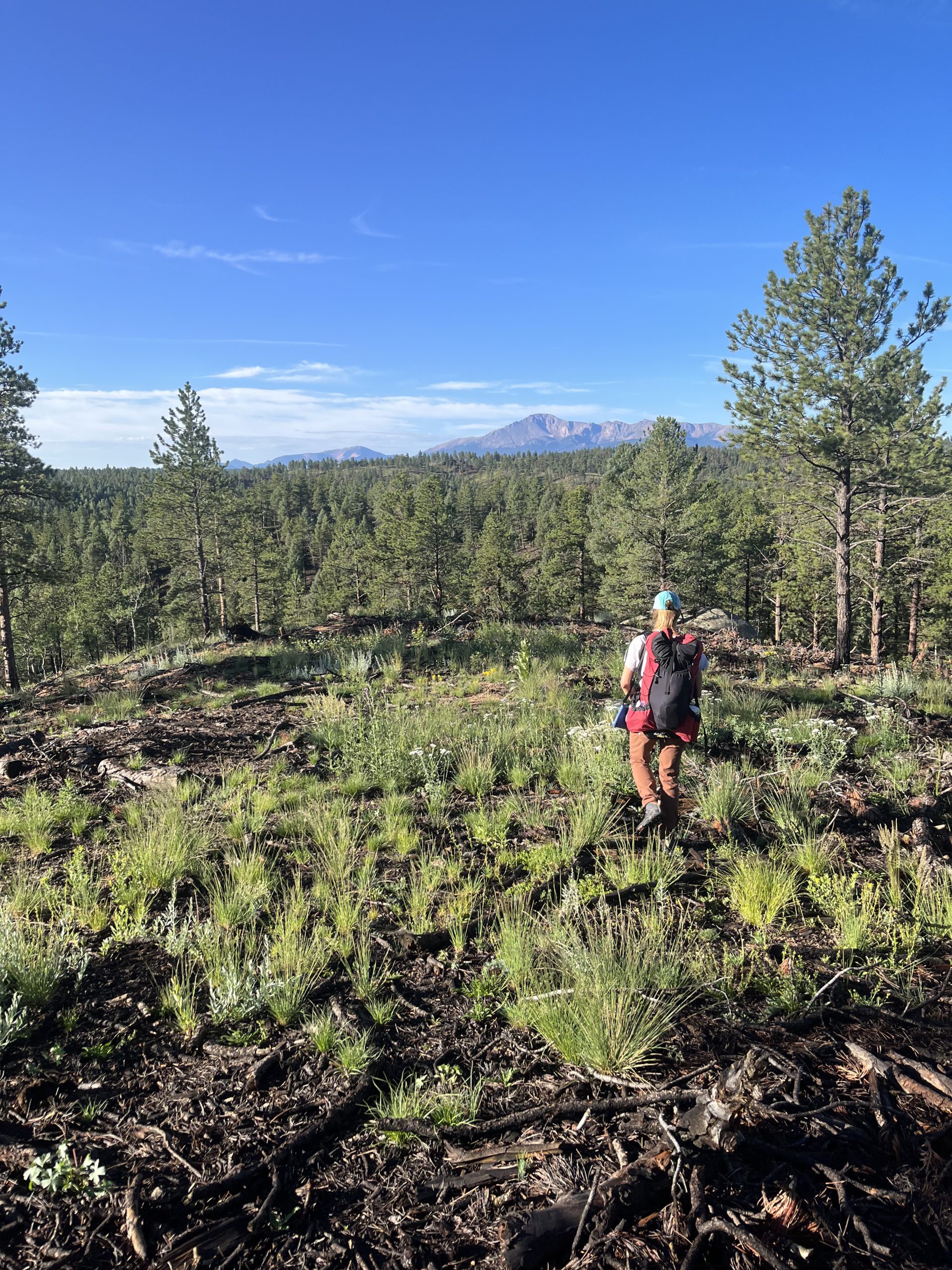
“Since then, I have found larger appeal in conservation biology and environmental studies because these disciplines tend to consider environmental problems within the context of social and economic issues, which I believe produce solutions that are more tailored to the real world,” says Lehnert.
One real world component in Lehnert’s research is an emphasis on compassion and support for the locals who live in biodiverse areas. These individuals depend on the land for their family’s survival. Lehnert warns long-term gains in conservation cannot be made without sustaining locals’ economic and social livelihoods. In addition, Lehnert encourages us to better understand the consequences of our purchasing power.
“The truth is that as consumers in a globalized economy, we are all a part of a system that drives deforestation in biodiverse regions such as the Amazon and the Atlantic Forest,” says Lehnert. “As consumers with buying power, especially from Global North countries which largely drive demand, it is a responsibility to be literate, or at least aware, about where our food comes from and the consequences of those purchasing decisions.”
After graduation, Lehnert would like to work as a researcher or consultant for a conservation, biology-oriented non-profit in Latin America. A longer-term dream of Lehnert’s is to open a research station in the Chocó region of South America. She has deep emotional ties to this biodiverse hotspot, which faces a myriad of threats. Lehnert hopes to contribute to the region’s conservation in a way that is socially sustainable.
For aspiring graduate students, Lehnert advises taking time off to gain perspective on your research.
“Even if your interests don’t change, your understanding of how you and your work fits into the bigger picture will be better situated,” says Lehnert. “I took three years in between my undergraduate degree and my master’s degree, and again between my master’s and PhD program, and am very grateful for that time in giving me greater perspective.”
With the backing of the IBS Training Program grant, Lehnert is one step closer to making a lasting impact in both environmental conservation and economic sustainability for farmers. Her work in Brazil will help biodiversity thrive amidst human modified landscapes and ensure farmers receive the support they need to be both sustainable and economically prosperous.
Helping children, families cope after the LA fires – Lori Peek for AP News
Professor of Sociology and Director of both the Natural Hazards Center and CONVERGE, Lori Peek, was recently featured on AP News. She draws on her decades of expertise to share how families can best help children cope after extreme, traumatic events. The story details the loss and hope of children and families in Los Angeles after the nearly month-long fires in January.
Dejun “Tony” Kong to discuss the power of gratitude in boosting employee engagement
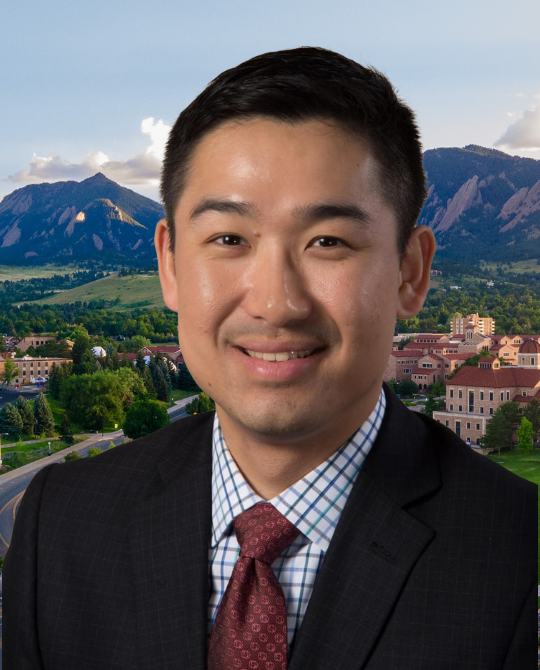
When a supervisor expresses gratitude for employees in a way that the employee prefers, that employee will participate more at work. This is according to a recent study from CU Boulder Professor of Organizational Leadership and Information Analytics (OLIA), Dejun “Tony” Kong. Kong will discuss his new research at our upcoming IBS Speaker Series on March 3.
Who: Dejun “Tony” Kong, Associate Professor at Leeds School of Business, Director of OLIA PhD Program, and Faculty Director of the Leadership Certificate Program
When: Monday, March 3 from 12 – 1 p.m. MT
Where: Richard Jessor Building, Room 155 or via Zoom (email ibs-contact@colorado.edu for passcode)
Field: Organizational Leadership and Information Analytics (OLIA), Business Administration
“Feeling appreciated is integral to developing and sustaining high-quality relationships, but many employees do not feel appreciated at work,” – Tony Kong
For his talk, Kong will share his risk regulation model (RRM) showing the relationships among supervisor gratitude expression, employee felt appreciation, and employee voice at work. Kong and his team performed a systemic analysis using an inductive multi-step process with pilot studies. They then tested their model with 124 supervisor-employee dyads. Kong will discuss the theoretical and practical applications of his findings.
The IBS Speaker Series is open to all CU Boulder faculty, staff, and students as well as the public. This talk is hosted by the Health and Society Program at the Institute of Behavioral Science.
This talk is specifically of interest for people who:
- Want to understand how to better connect with teammates or collaborators
- Want to better connect with employees and boost team moral
- Are interested in organizational leadership, team dynamics, information analytics, or relationships
Kong is a Fellow of the Association for Psychological Science and a top 2 percentile scientist (based on single years) in the world (ranked by Elsevier BV and Stanford University). He is also a Poets & Quants 40-under-40 Best Business Professor (2019). He has published nearly 70 journal articles, many of which appear in top journals in Management and Psychology, and 1 co-edited book. His research addresses the following overarching question: How can we enable people to be more prosocial (to promote others or collective interests)? To address this question, he focuses on three streams of research: (1) fostering individuals’ positive experiences, (2) fostering excellent organizational systems, and (3) fostering a high-trust society. He has received many awards for his research, teaching, and service. He is an associate editor of the Journal of Management and the Journal of Organizational Behavior. In 2024, he was elected to be Program Chair-Elect (a five-year leadership track) of the Academy of Management’s Conflict Management Division.
Learn more about Kong’s research:
Richard Jessor recounts momentous flag raising at Iwo Jima
On February 23 1945, during the Battle of Iwo Jima, 20-year-old Marine and future IBS co-founder, Richard Jessor witnessed the iconic flag-raising on Mount Suribachi. After days of intense combat and personal injury from shrapnel, Jessor recalls the profound impact of seeing the American flag hoisted atop the mountain, a moment that bolstered the morale of U.S. forces and symbolized a turning point in the battle. Read more about Jessor’s recount of the flag raising with Bradley Worrell for CU Boulder’s College of Arts and Sciences Magazine.
